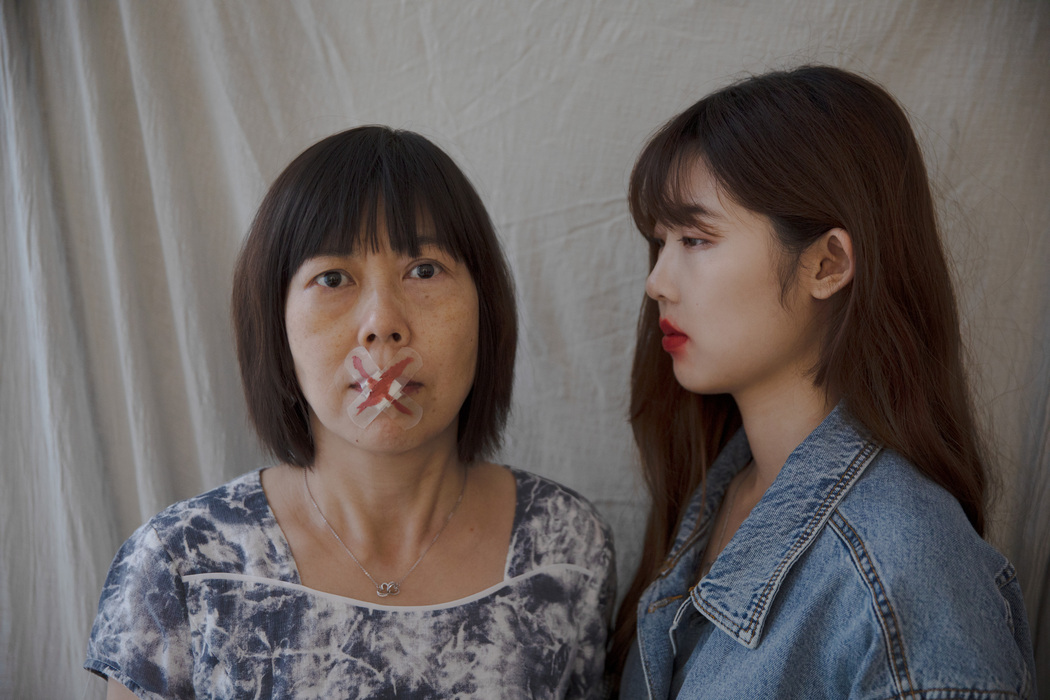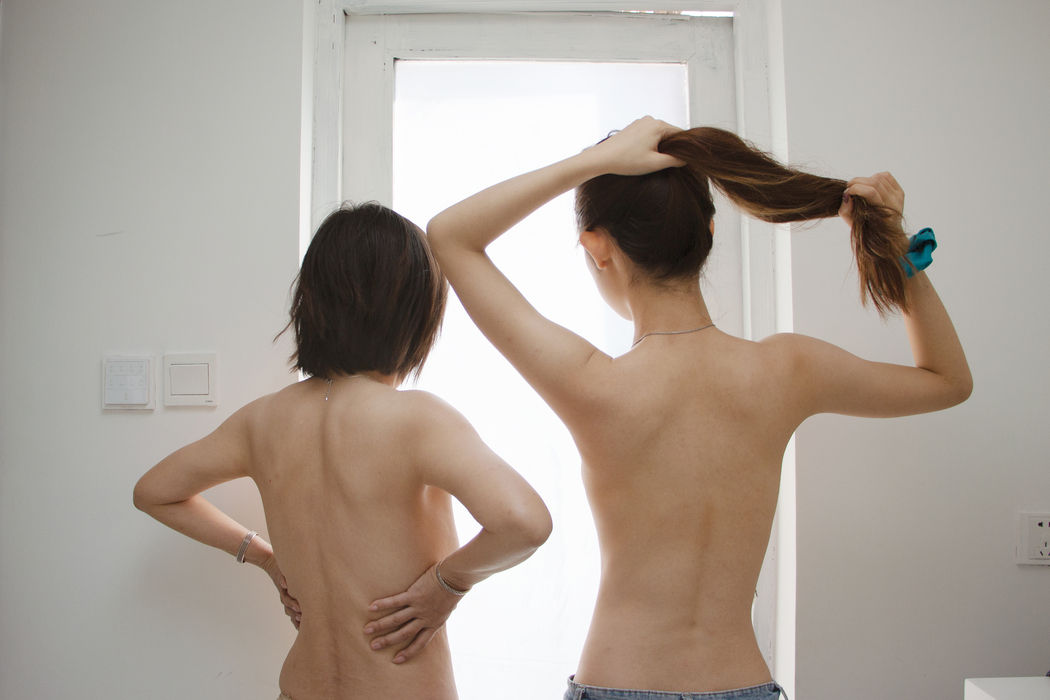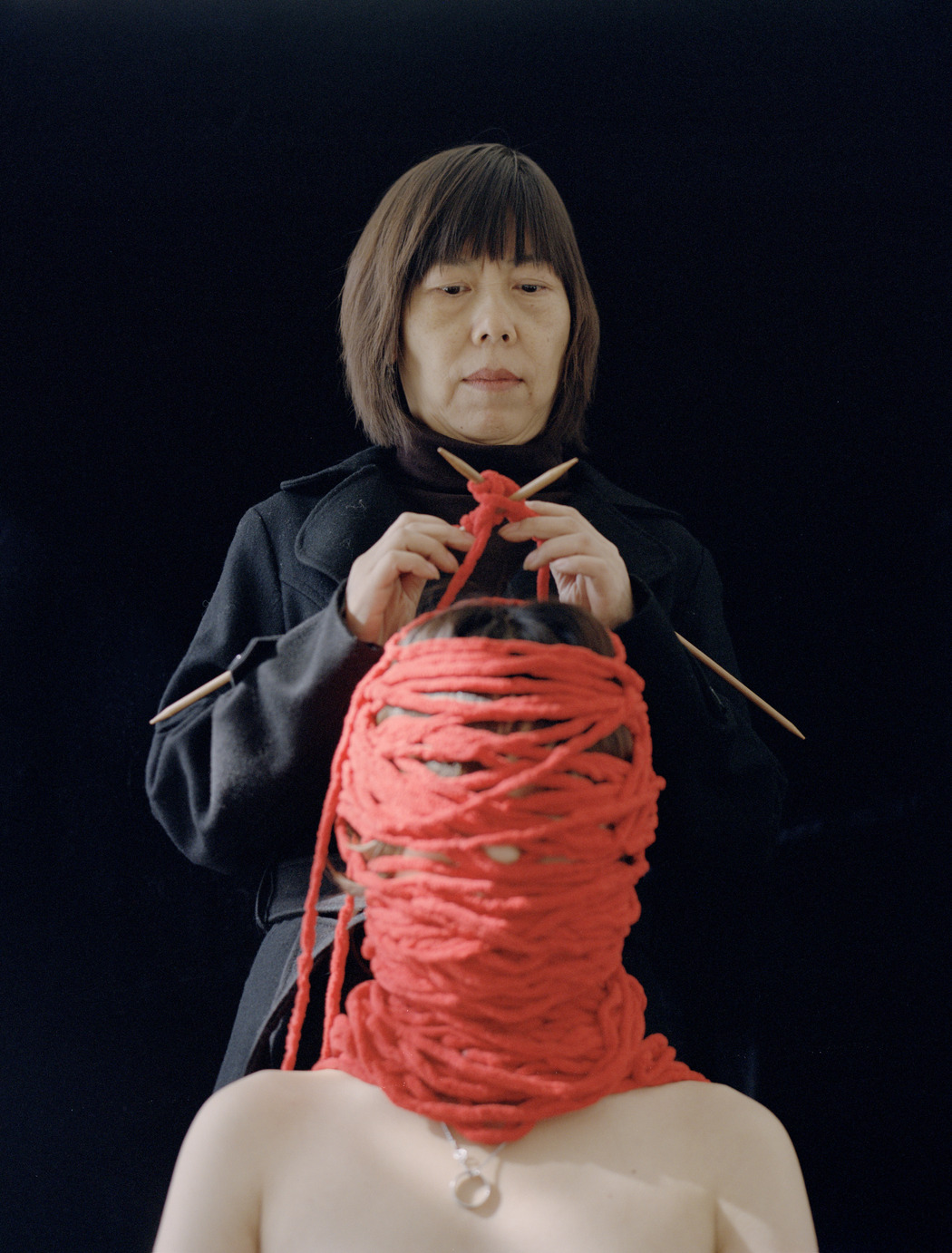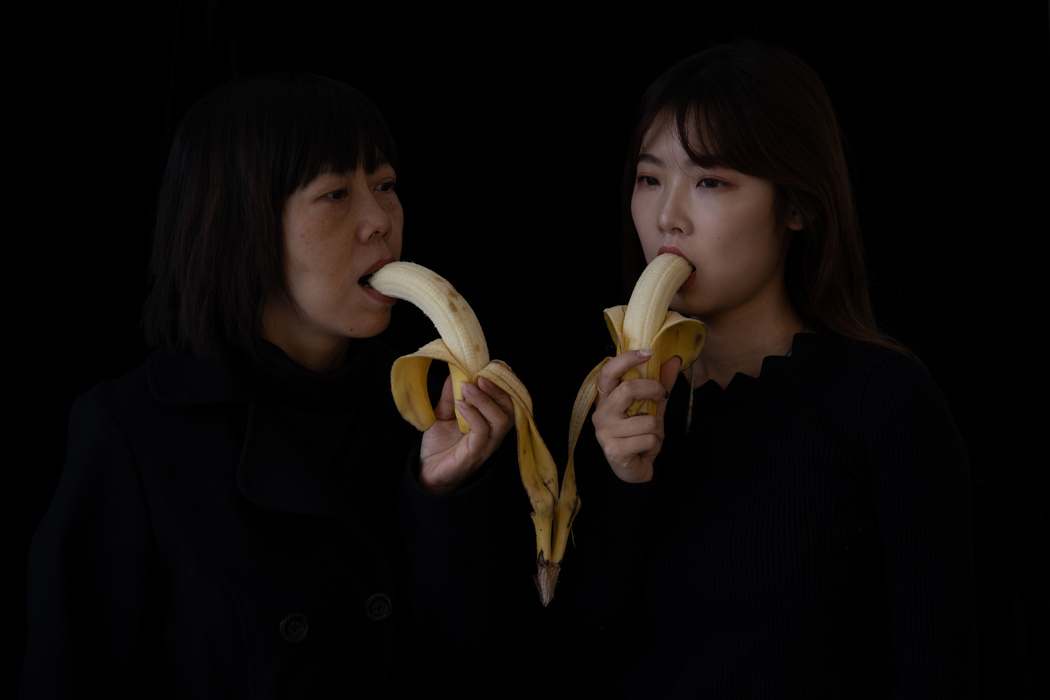Mengzhu Li (Helen)
Critical Review: The Dual Dialogues of Identity in Mengzhu Li’s Visual Practice
by Anna Gvozdeva
In the work of Mengzhu Li (Helen), tension and tenderness interlace to form a compelling narrative of East Asian womanhood, one that resonates far beyond personal memory into collective cultural consciousness. A photographer and visual artist working between China and the UK, Li uses her dual identity as a lens—both literal and metaphorical—through which she investigates the psychological landscapes of intergenerational relationships, gender roles, and emotional legacies.
Graduating with a Master’s degree in Contemporary Photography and Philosophy from Central Saint Martins, and previously trained in Beijing, Li embodies a critical hybridity that informs her practice. Her series of photographs—poignant, performative, and often unsettling—operate at the intersection of personal vulnerability and socio-political commentary. They do not merely depict subjects; they stage encounters—between mother and daughter, tradition and modernity, intimacy and autonomy.
In “Two in One,” two women—presumably mother and daughter—stand topless, facing a backlit window, their postures both casual and defiant. The mirrored gestures speak to inherited identities and the physical and emotional imprint of familial proximity. It’s a quiet yet radical intimacy, one that refuses eroticization in favor of raw realism.
 Mengzhu Li | Two in One
Mengzhu Li | Two in One
Similarly, “Mutual Discontent” presents a haunting visual of the mother’s mouth crossed out with tape as the daughter gazes at her in profile. The image feels like a silent argument—love bound by repression, a generational gap voiced through forced silence. This motif of communicative breakdown reappears across Li’s body of work as both a metaphor and a method: her visual narratives often speak most loudly when words are absent.
 Mengzhu Li | Mutual Discontent
Mengzhu Li | Mutual Discontent
In “Making,” red yarn is tightly knit around the daughter’s face, concealing her entirely, while the mother stands above her, knitting. The suffocating closeness implies nurture turned into entrapment—a visual allegory of love that binds too tightly. The use of yarn, a traditionally “feminine” material, makes a critical statement about the domestic labor and emotional weaving often expected of women, particularly in conservative Asian households.
 Mengzhu Li | Making
Mengzhu Li | Making
Even humor is not exempt from critique. In “Break,” both women sit in an everyday bathroom, but the daughter appears only on a laptop screen resting on the mother’s lap. It’s an absurd, semi-surreal confrontation with digital fragmentation of relationships—an ironic take on physical presence and emotional distance in the digital age.
 Mengzhu Li | Break
Mengzhu Li | Break
What elevates Mengzhu Li’s work is its seamless blend of conceptual depth and visceral emotion. Her photographs become poetic texts, where each visual component—gesture, gaze, fabric, or setting—functions as syntax in a language of memory and critique. Through constructed tableaus and symbolic action, she captures the paradoxes of female identity shaped by both care and control.
In today’s global art scene, where multiculturalism and identity politics are often surface-level themes, Li’s work stands out for its emotional precision and philosophical grounding. Her visual essays are neither didactic nor ornamental—they are lived experiences transfigured into art. By focusing on the nuanced tensions within the mother-daughter bond in only-child families, particularly in East Asia, she opens a broader dialogue about how we inherit, resist, and reimagine our roles within culture and kinship.
Mengzhu Li’s art is a call to witness: not only to observe the lives of women in transition, but to feel with them—the weight, the warmth, and the wordless spaces in between.

Leave a Reply
You must be logged in to post a comment.